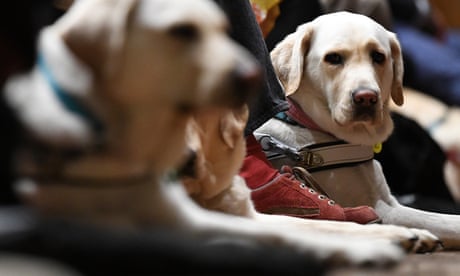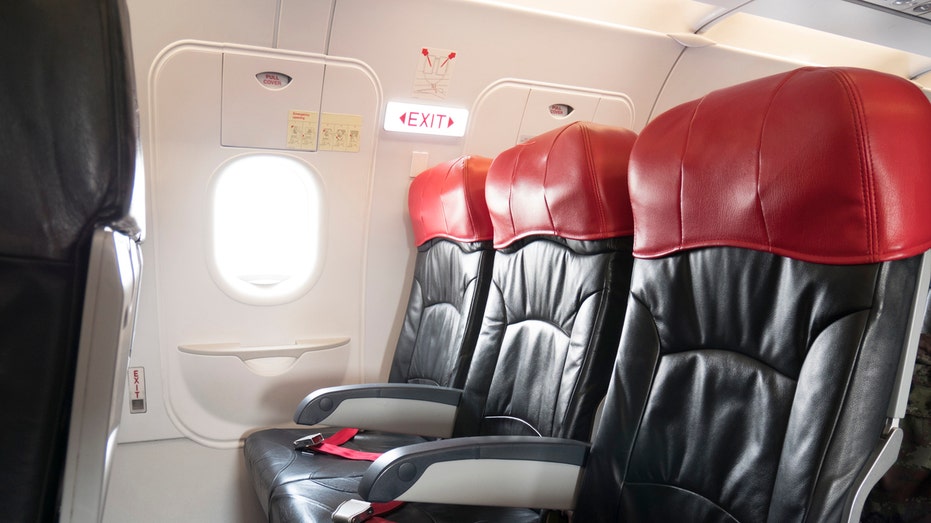- by foxnews
- 31 Jan 2025
Tribunal overturns NDIA?s refusal to fund assistance dog for autistic boy
Tribunal overturns NDIA’s refusal to fund assistance dog for autistic boy
- by theguardian
- 29 Dec 2021
- in news

A tribunal has overturned a decision by the National Disability Insurance Agency to refuse to fund an assistance dog for an eight-year-old autistic boy.
In the latest case where a family has been forced to take the agency to the Administrative Appeals Tribunal (AAT) over an assistance dog, the tribunal this month ruled in favour of the boy and his mother, more than two years after they first requested the funding.
It comes amid a string of other cases in which NDIS participants have reported seeing their plans cut and with appeals to the AAT having increased by more than 300% this financial year, as revealed by Guardian Australia recently.
The boy, whose name was not published by the tribunal, is autistic, has generalised anxiety disorder and ADHD, with the anxiety a "prominent" feature of his life that "impairs his ability to spend time at different places in the community".
His mother also told the tribunal that her son often experienced "meltdowns" at home while his therapists gave evidence that much of their sessions were spent trying to calm him down.
Despite several of his treating professionals recommending an assistance dog given his love of animals and the success of equine therapy, the NDIA refused the funding request in August 2019, saying it was not "reasonable and necessary".
The dog, which was to be trained and provided by the Queensland not-for-profit Smart Pups, would have cost the agency $20,000.
The tribunal heard the dog would be trained to "lap" (dog places head on the child), "nuzzle" (dog pushes into the child to disrupt behaviour), and "over" (dog lays across the child to provide weighted comfort).
The agency told the tribunal there was insufficient evidence an assistance dog would help the boy to regulate his emotions and any impact it did have could also be gained through the purchase of a pet dog, which the family should pay for themselves.
It questioned whether funding for an assistance dog could be considered "value for money", as required under the NDIS Act, because was no guarantee it would be successful.
The agency, represented by an externally funded barrister, also called several expert witnesses, including one who suggested it was possible the boy could harm the dog.
The NDIA later cited that evidence to argue the assistance dog's welfare could be a concern.
The tribunal heard the boy previously experienced violent outbursts directed at his mother, but never towards animals, which were his "happy place".
Another expert called by the NDIA backed its call that there was no need for an assistance dog because the support could be provided by an ordinary pet.
The boy was represented pro-bono by barrister John Gurr, who said the agency was trying to "downplay the benefits" of an assistance dog by saying it would do "little more than provide a calming influence".
"[The boy] suffers from profound anxiety," Gurr said. "His anxiety is such that his ability to leave the house and participate in the broader community is severely constrained.
"[The boy's] anxiety - and the meltdowns which follow - have the regular consequence that [he] is often so emotionally dysregulated when he attends his regular therapy sessions that half the time is spent trying to calm [him] down. Much of the benefit of the sessions is lost."
AAT member Kim Parker sided with the family, saying there was evidence an assistance dog was likely to "provide tremendous benefits" and might assist the boy to "improve his communication skills and to have fewer meltdowns".
Parker said it was " not reasonable to expect [the boy's] mother to provide a pet dog for [him] as a substitute to him having access to a professionally trained assistance dog."
Unlike a family pet, an assistance dog would also have public access rights to accompany the boy in all public places.
The case is one of several in recent months where the agency has refused to fund assistance dogs but had the decision overturned by the AAT.
For example, in February, a 63-year-old cancer survivor living with a rare autoimmune disorder gained access to an assistance dog after the AAT ruled in her favour, three years after she first applied to the NDIS.
The NDIS minister, Linda Reynolds, pledged in June to work with the agency to get "more consistency in policy and more clarity in terms of animal support".
- by foxnews
- descember 09, 2016
Flight passenger asks who controls entertainment center for extra seat, ignites etiquette debate
A flight passenger asked on Reddit about the use of the entertainment center when sitting in a two-seat, exit-row chair, with folks on social media weighing in. An etiquette expert shared insights.
read more


